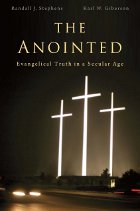
American evangelicalism often appears as a politically monolithic, textbook red-state fundamentalism that elected George W. Bush, opposes gay marriage, abortion, and evolution, and promotes apathy about global warming. Prominent public figures hold forth on these topics, speaking with great authority for millions of followers. Authors Stephens and Giberson, with roots in the evangelical tradition, argue that this popular impression understates the diversity within evangelicalism—an often insular world where serious disagreements are invisible to secular and religiously liberal media consumers. Yet, in the face of this diversity, why do so many people follow leaders with dubious credentials when they have other options? Why do tens of millions of Americans prefer to get their science from Ken Ham, founder of the creationist Answers in Genesis, who has no scientific expertise, rather than from his fellow evangelical Francis Collins, current Director of the National Institutes of Health?
Exploring intellectual authority within evangelicalism, the authors reveal how America’s populist ideals, anti-intellectualism, and religious free market, along with the concept of anointing—being chosen by God to speak for him like the biblical prophets—established a conservative evangelical leadership isolated from the world of secular arts and sciences.
Today, charismatic and media-savvy creationists, historians, psychologists, and biblical exegetes continue to receive more funding and airtime than their more qualified counterparts. Though a growing minority of evangelicals engage with contemporary scholarship, the community’s authority structure still encourages the “anointed” to assume positions of leadership.
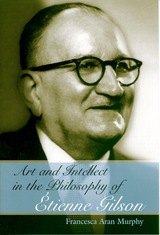

We imagine that we are both in control of and controlled by our bodies—autonomous and yet automatic. This entanglement, according to David W. Bates, emerged in the seventeenth century when humans first built and compared themselves with machines. Reading varied thinkers from Descartes to Kant to Turing, Bates reveals how time and time again technological developments offered new ways to imagine how the body’s automaticity worked alongside the mind’s autonomy. Tracing these evolving lines of thought, An Artificial History of Natural Intelligence offers a new theorization of the human as a being that is dependent on technology and produces itself as an artificial automaton without a natural, outside origin.
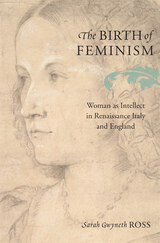
In this illuminating work, surveying 300 years and two nations, Sarah Gwyneth Ross demonstrates how the expanding ranks of learned women in the Renaissance era presented the first significant challenge to the traditional definition of “woman” in the West.
An experiment in collective biography and intellectual history, The Birth of Feminism focuses on nineteen learned women from the middle ranks of society who rose to prominence in the world of Italian and English letters between 1400 and 1680. Drawing both on archival material—wills, letters, and manuscript compositions, some presented here for the first time—and on printed writings, Ross gives us an unprecedented sense of educated early modern women’s lives.
Sponsored and often educated by their learned fathers and other male relatives within a model that Ross terms “the intellectual family,” female authors publicized their works within the safety of family networks. These women, including Christine de Pizan, Laura Cereta, Margaret More Roper, Lucrezia Marinella, and Bathsua Makin, did not argue for women’s political equality, but they represented and often advocated women’s intellectual equality. Ross demonstrates that because of their education, these women had a renaissance during the Renaissance, and that in so doing they laid the foundation for the emancipation of womankind.

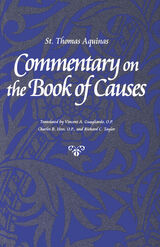
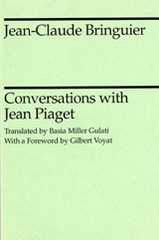
"The tone is one of constant movement from the most ordinary to the most abstruse. There are 14 conversations with 'le Patron,' some in 1969, some in 1975, and several more with co-workers in various fields. . . . In Mr. Bringuier's book, in a pleasant informal way, we see a sophisticated non-scientist exploring Piaget's domain with the master. Some of Piaget's best-known findings about children as explained along the way, but Mr. Bringuier has ways of bringing out the relation of this psychological work to the whole of Piaget's enterprise, and we get a good sense of the man and his work."—Howard E. Gruber, New York Times Book Review
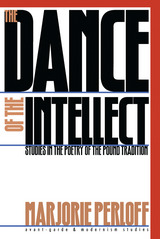
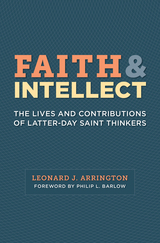
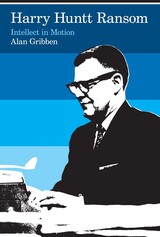
Both a life story and a portrait of public higher education during the twentieth century, Harry Huntt Ransom captures the spirit of a dynamic individual who dedicated his talents to nurturing intellectual life in Texas and beyond. Tracing the details of Ransom's youth in Galveston and Tennessee and his education at Yale, where he earned a doctorate, Alan Gribben provides new insight into the factors that shaped Ransom's future as a renowned administrator and defender of the humanities.
Ransom's career at the University of Texas began in 1935, when he was hired as an instructor of English. He rose through the ranks to become chancellor, stepping down in 1971 during a volatile period when debates about the University's central mission raged—particularly over the question of commercializing higher education. The development of Ransom's lasting legacy, the Humanities Research Center bearing his name, is explored in depth as well. Bringing to life a legendary figure, Harry Huntt Ransom is a colorful testament to a singular man of letters who had the audacity to propose "that there be established somewhere in Texas—let's say in the capital city—a center of our cultural compass, a research center to be the Bibliothèque Nationale of the only state that started out as an independent nation."
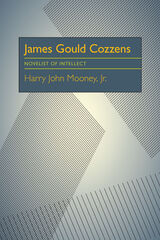
During the early 1930s, after James Gould Cozzens had published four romantic novels and then withdrawn them from circulation, he wrote the first three of what Brenden Gill called his eight “canonical works.” But it was only after the publication of By Love Possessed in 1957 that he achieved wide popularity. Mooney closely examines each of Cozzens’ novels, isolating and defining his main themes and addressing the critical acclaim and condemnation of his works.
Among the novels Mooney analyzes are: S.S. San Pedro, Castaway, The Last Adam, Men and Brethren, Ask Me Tomorrow, The Just and the Unjust, Guard of Honor, and By Love Possessed.

Alison Jolly believes that biologists have an important story to tell about being human—not the all-too-familiar tale of selfishness, competition, and biology as destiny but rather one of cooperation and interdependence, from the first merging of molecules to the rise of a species inextricably linked by language, culture, and group living. This is the story that unfolds in Lucy’s Legacy, the saga of human evolution as told by a world-renowned primatologist who works among the female-dominant ringtailed lemurs of Madagascar.
We cannot be certain that Lucy was female—the bones themselves do not tell us. However, we do know, as Jolly points out in this erudite, funny, and informative book, that the females who came after Lucy—more adept than their males in verbal facility, sharing food, forging links between generations, migrating among places and groups, and devising creative mating strategies—played as crucial a role in the human evolutionary process as “man” ever did. In a book that takes us from the first cell to global society, Jolly shows us that to learn where we came from and where we go next, we need to understand how sex and intelligence, cooperation and love, emerged from the harsh Darwinian struggle in the past, and how these natural powers may continue to evolve in the future.

Mentality and Machines was first published in 1985. Minnesota Archive Editions uses digital technology to make long-unavailable books once again accessible, and are published unaltered from the original University of Minnesota Press editions.
Mentality and Machines — with a new preface and an extended postscript—is a general essay on the philosophy of mind, oriented to philosophical and psychological questions about real as well as imagined, robots and machines. The second edition retains all of the essays from the original book, including Gunderson's influential critique ("The Imitation Game") of A.M. Turing's treatment of the question "Can machines think?" and his controversial distinction between program-receptive and program-resistant aspects of the mind. This edition's postscript includes further reflections on these themes and others, and relates them to recent writings of other philosophers and computer scientists.
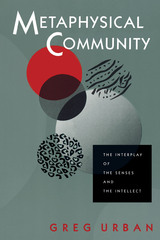
Winner, Senior Book Prize, American Ethnological Society
Starting with the post-structuralist idea that truth systems are lodged in discourse, and that discourse varies from society to society, Greg Urban seeks to discover the nature and extent of that variation. His journey to an Amerindian society in which dreams are more prominent than everyday aspects of the sensible world leads him to radically reformulate one of the main problematics of Western thought: the relationship between our sensations of the world and the understandings we form of them.
Metaphysical Community proposes that this dichotomy comes from the interplay between two sides of discourse-its intelligible side as a carrier of meanings, and its sensible side as thing-in-the-world that must be replicated. This insight leads to the heart of the book-the exploration of the uneasy tension that binds experience and understanding, phenomena and noumena.
Urban challenges basic assumptions that underlie social and cultural anthropology and much of the social sciences and humanities. His provocative insights will be of interest to all those concerned with anthropology, cultural studies, literary criticism, the sociology and politics of culture, and philosophy.

Behind the façade of unity, the French intelligentsia was riven by the same fundamental divisions that had characterized it before the war. For example, the Republican Left argued that German nationalism and militarism began after Kant, with Fichte or Hegel, while the Catholic and nationalistic reactionary Right denounced Kant as the evil inspiration of France's liberal democracy and public school system. The heated rhetoric of the war and the unbearable loss of young lives, says Hanna, lent weight to a redefinition of French culture in national terms—and this, ironically, ended in the cultural conservatism of Vichy France.
This is the first study of the power of French pens and words during and after the Great War. It is a contribution to French and European history as well as to intellectual history.
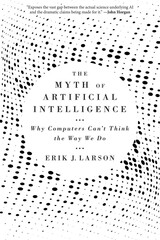
“Exposes the vast gap between the actual science underlying AI and the dramatic claims being made for it.”
—John Horgan
“If you want to know about AI, read this book…It shows how a supposedly futuristic reverence for Artificial Intelligence retards progress when it denigrates our most irreplaceable resource for any future progress: our own human intelligence.”
—Peter Thiel
Ever since Alan Turing, AI enthusiasts have equated artificial intelligence with human intelligence. A computer scientist working at the forefront of natural language processing, Erik Larson takes us on a tour of the landscape of AI to reveal why this is a profound mistake.
AI works on inductive reasoning, crunching data sets to predict outcomes. But humans don’t correlate data sets. We make conjectures, informed by context and experience. And we haven’t a clue how to program that kind of intuitive reasoning, which lies at the heart of common sense. Futurists insist AI will soon eclipse the capacities of the most gifted mind, but Larson shows how far we are from superintelligence—and what it would take to get there.
“Larson worries that we’re making two mistakes at once, defining human intelligence down while overestimating what AI is likely to achieve…Another concern is learned passivity: our tendency to assume that AI will solve problems and our failure, as a result, to cultivate human ingenuity.”
—David A. Shaywitz, Wall Street Journal
“A convincing case that artificial general intelligence—machine-based intelligence that matches our own—is beyond the capacity of algorithmic machine learning because there is a mismatch between how humans and machines know what they know.”
—Sue Halpern, New York Review of Books
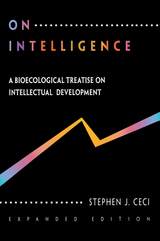
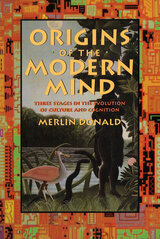

Postures of the Mind was first published in 1985. Minnesota Archive Editions uses digital technology to make long-unavailable books once again accessible, and are published unaltered from the original University of Minnesota Press editions.
Annette Baier develops, in these essays, a posture in philosophy of mind and in ethics that grows out of her reading of Hume and the later Wittgenstein, and that challenges several Kantian or analytic articles of faith. She questions the assumption that intellect has authority over all human feelings and traditions; that to recognize order we must recognize universal laws—descriptive or prescriptive; that the essential mental activity is representing; and that mental acts can be analyzed into discrete basic elements, combined according to statable rules of synthesis.
In the first group of essays—"Varieties of Mental Postures"—Baier evaluates the positions taken by philosophers ranging from Descartes to Dennett and Davidson. Among her topics are remembering, intending, realizing, caring, representing, changing one's mind, justifying one's actions and feelings, and having conflicting reasons for them. The second group of essays—"Varieties of Moral Postures" - explores the sort of morality we get when all of these capacities become reflective and self-corrective. Some deal with particular moral issues—our treatment of animals, our policies regarding risk to human life, our contractual obligations; others, with more general questions on the role of moral philosophers and the place of moral theory. These essays respond to the theories of Hobbes, Kant, Rawls, and MacIntyre, but Baier's most positive reaction is to David Hume; Postures of the Mind affirms and cultivates his version of a moral reflection that employs feeling and tradition as well as reason.
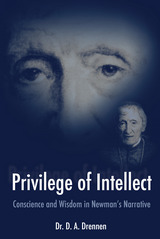
Based on decades of research, A Privilege of Intellect is D. A. Drennen’s portrait of the English cardinal John Henry Newman (1801–90), whose conversion to the Roman Catholic Church in 1845 significantly boosted the presence of the Catholic Church in England and caused many Anglicans to follow his example. Newman—who will be beatified this fall—devoted his life both to the Church and to the university, demonstrating that religious faith and intellectual pursuits could exist in harmony. Drennen’s biography combines theology with psychology and philosophy and will appeal to anyone interested in the history of the Church of England and the Roman Catholic Church.
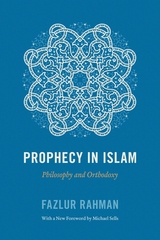
This longstanding and highly regarded volume is the first to explore the doctrine of prophetic revelation, a critical and definitive area of Islamic religious and political thought. In it, the esteemed Islamic scholar Fazlur Rahman traces the inception of this doctrine from ancient Greek texts, its interpretation and elaboration by Muslim philosophers in order to suit their vision of the Prophet, and, finally, the varying degrees of acceptance of these convergent ideas by the Muslim orthodoxy.
The latest edition of this classic text includes a new foreword by Islamic studies expert Michael Sells, confirming Prophecy in Islam as the best source on its subject after more than half a century. This longstanding and highly regarded volume is the first to explore the doctrine of prophetic revelation, a critical and definitive area of Islamic religious and political thought. In it, the esteemed Islamic scholar Fazlur Rahman traces the inception of this doctrine from ancient Greek texts, its interpretation and elaboration by Muslim philosophers in order to suit their vision of the Prophet, and, finally, the varying degrees of acceptance of these convergent ideas by the Muslim orthodoxy.
The latest edition of this classic text includes a new foreword by Islamic studies expert Michael Sells, confirming Prophecy in Islam as the best source on its subject after more than half a century.

“If it were necessary, for some curious legal reason, to draw a clear line between human and nonhuman—for example, if a group of Australopithecines were to appear and one had to decide if they were to be protected by Fair Employment Laws or by the ASPCA—I would welcome them as humans if I knew that they were seriously concerned about how to bury their dead.” In this witty and wise way, Lawrence Slobodkin takes us on a spirited quest for the multiple meanings of simplicity in all facets of life.
Slobodkin begins at the beginning, with a consideration of how simplicity came into play in the development of religious doctrines. He nimbly moves on to the arts—where he ranges freely from dining to painting—and then focuses more sharply on the role of simplicity in science. Here we witness the historical beginnings of modern science as a search for the fewest number of terms, the smallest number of assumptions, or the lowest exponents, while still meeting criteria for descriptive accuracy. The result may be an elegant hypothetical system that generates the apparent world from less apparent assumptions, as with the Newtonian revolution; or it may mean deducing non-obvious processes from everyday facts, as with the Darwinian revolution.
Slobodkin proposes that the best intellectual work is done as if it were a game on a simplified playing field. He supplies serious arguments for considering the role of simplification and playfulness in all of our activities. The immediate effect of his unfailingly captivating essay is to throw open a new window on the world and to refresh our perspectives on matters of the heart and mind.
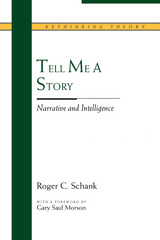

major contribution to the current revival of pragmatism in
America by showing how it provides the most critically
resilient and constructive response to the intellectual
challenges of postmodernism.
Gunn reclaims and refurbishes elements of the pragmatic
tradition that either have been lost or have undergone
important changes and shows how newer critical approaches
have strong roots in the pragmatic tradition. For Gunn,
pragmatism is no longer concerned solely with the nature of
knowledge and the meaning of truth. Because of its
insistence on critical self-awareness, its opposition to
closed systems of thought, and its concern with the ethical,
political, and practical contexts of ideas, pragmatism offers
a blueprint for performing intellectual work in a world
without absolutes. The world Gunn's pragmatism recognizes is
one of multiple truths, unstable interpretations, and
competing interests.
After critically reexamining the nature and scope of the
pragmatic legacy, Gunn explores the way pragmatism
successfully responds to conceptual and methodological
controversies, from the rebirth of ideology, the spread of
interdisciplinarity, and the development of the new
historicism, to the revolt against theory, the erosion of
public discourse, and the problematics of American civil
religion. Drawing throughout on the work of William James,
Henry James, Sr., John Dewey, Kenneth Burke, W. E. B. Du
Bois, Richard Poirier, Stanley Cavell, Clifford Geertz, Frank
Lentricchia, Richard Rorty, Richard J. Bernstein, and
others, Gunn shows that pragmatism, because it offers a way
of thinking across the categories of modern intellectual
specializations, is located at the intersection of these
critical, and often competitive, discourses. The postmodern
challenge for the pragmatist thinker is not only how to
render these different discourses conversible with one
another, but how to turn the salient insights of each into
elements of a new democratic and critical public culture, one
able to counter the twin threats of ideology and solipsism.
Giles Gunn is one of our most acclaimed contemporary critics,
and this broad and ambitious book is certain to become one of
the central works in the current revival of critical
pragmatism and cultural studies.
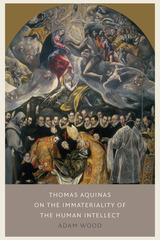
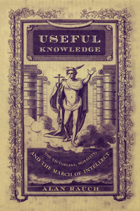
Rauch discusses both the influence and the ideology of knowledge in terms of how it affected nineteenth-century anxieties about moral responsibility and religious beliefs. Drawing on a wide array of literary, scientific, and popular works of the period, the book focusses on the growing importance of scientific knowledge and its impact on Victorian culture. From discussions of Jane Webb Loudon’s The Mummy! and Mary Shelley’s Frankenstein, to Charlotte Brontë’s The Professor, Charles Kingsley’s Alton Locke, and George Eliot’s Mill on the Floss, Rauch paints a fascinating picture of nineteenth-century culture and addresses issues related to the proliferation of knowledge and the moral issues of this time period. Useful Knowledge touches on social and cultural anxieties that offer both historical and contemporary insights on our ongoing preoccupation with knowledge.
Useful Knowledge will appeal to readers interested in nineteenth century history, literature, culture, the mediation of knowledge, and the history of science.

READERS
Browse our collection.
PUBLISHERS
See BiblioVault's publisher services.
STUDENT SERVICES
Files for college accessibility offices.
UChicago Accessibility Resources
home | accessibility | search | about | contact us
BiblioVault ® 2001 - 2024
The University of Chicago Press









